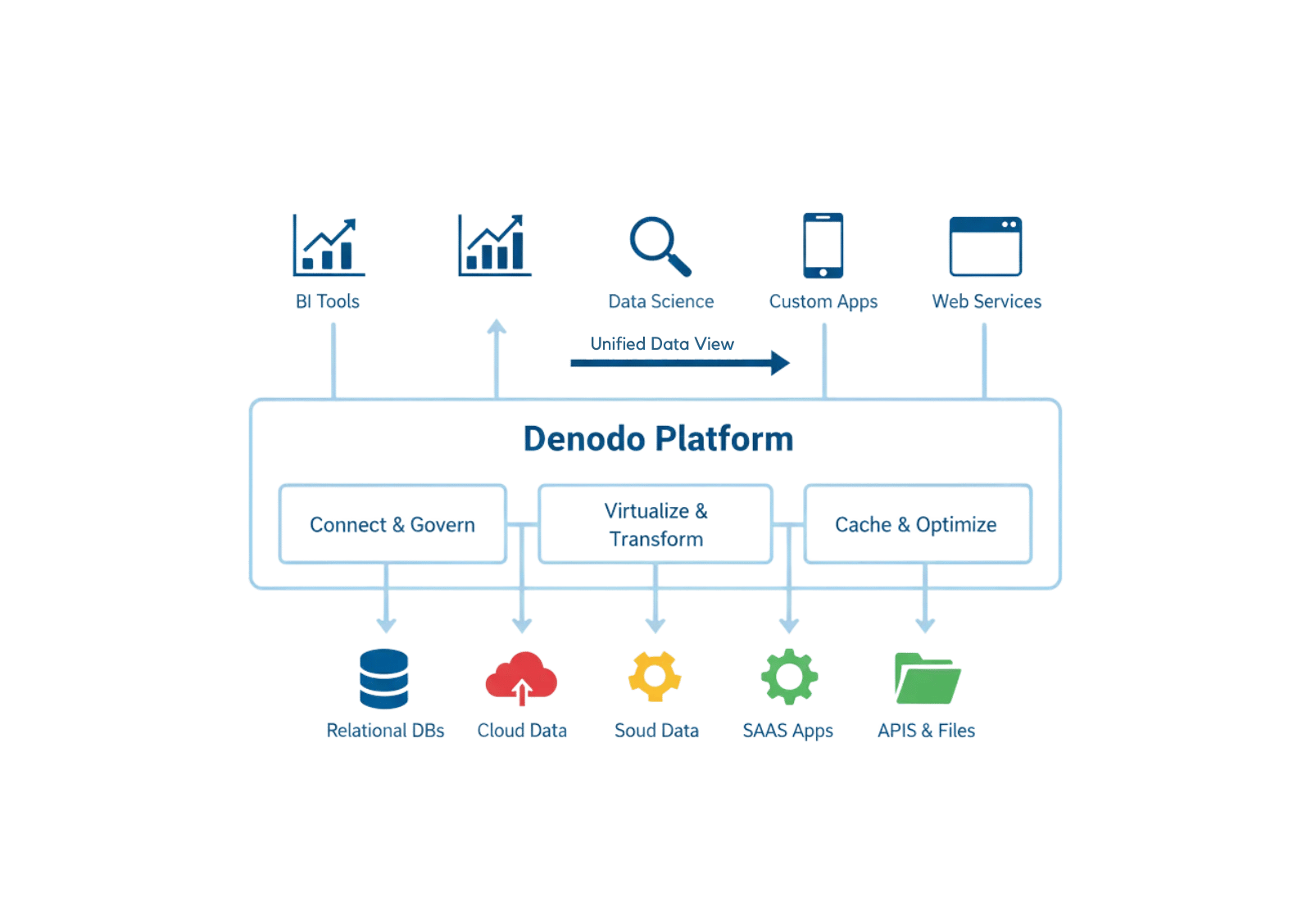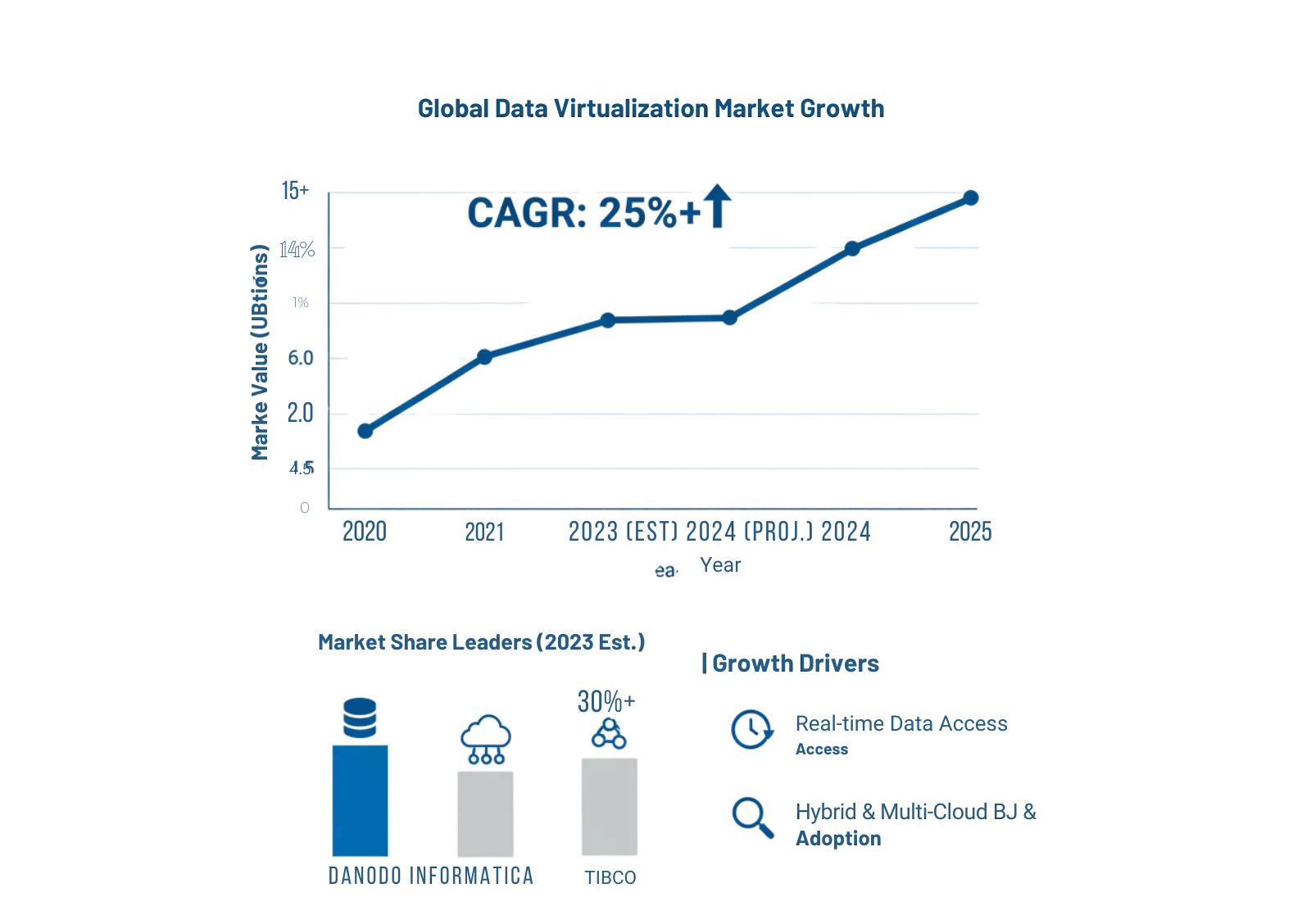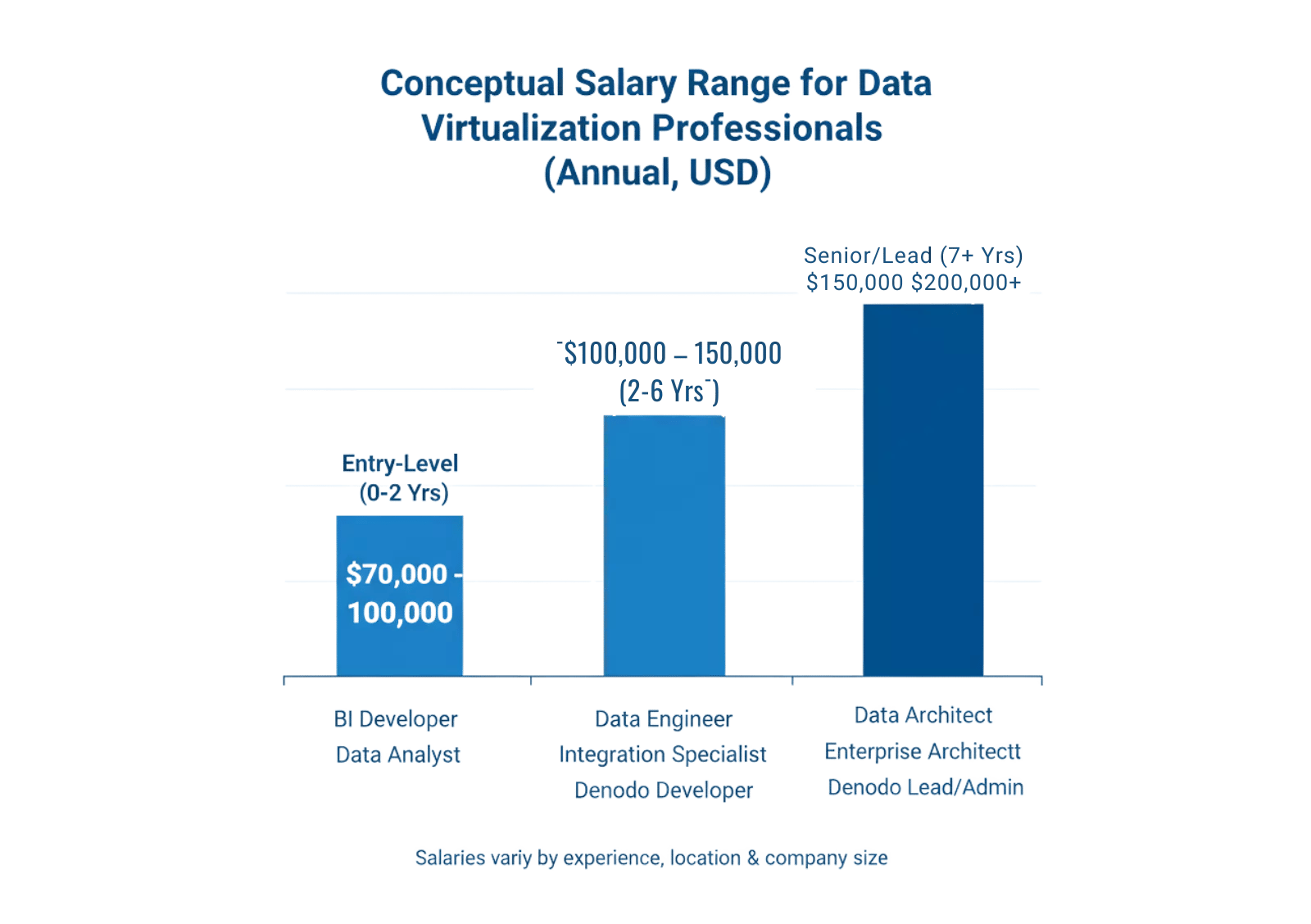What is Denodo? A Beginner’s Guide to Data Virtualization
In today's data-driven world, organizations are drowning in information. Data resides in countless disparate systems: cloud applications, on-premise databases, spreadsheets, APIs, and more. This fragmented landscape makes it incredibly challenging to get a unified view of your business, leading to slow decision-making, redundant efforts, and missed opportunities.
Enter Denodo and the concept of data virtualization.
What is Data Virtualization?
Imagine you're trying to assemble a complex puzzle, but all the pieces are scattered across different rooms in your house, some are in boxes, and others are behind locked doors. Data virtualization is like having a magical, invisible layer that can instantly gather all those puzzle pieces, present them as a single, complete picture, and let you interact with it as if it were all in one place – without physically moving any of the pieces.
In technical terms, data virtualization is a logical data integration technology that delivers a unified, real-time, and consistent view of all your data, regardless of its underlying location, format, or latency. It creates a virtual layer that sits on top of your existing data sources, allowing users and applications to query data as if it were all in a single database.
Key benefits of data virtualization:
- Real-time access: Get up-to-the-minute data without waiting for lengthy ETL processes.
- Agility: Quickly integrate new data sources and adapt to changing business needs.
- Cost savings: Reduce the need for data replication and storage.
- Improved data governance: Enforce security and compliance policies across all data sources.
- Reduced complexity: Simplify data access for business users and developers.
Where Does Denodo Fit In?
Denodo is a leading enterprise-grade data virtualization platform. It provides the tools and capabilities to build, manage, and consume these virtual data layers effectively. Think of Denodo as the architect and builder of that "magical, invisible layer" for your organization.
How Denodo works:
-
Connect: Denodo connects to a vast array of data sources, including relational databases, NoSQL databases, cloud data warehouses, Big Data platforms, web services, SaaS applications, and more.
-
Virtualize: It creates a virtual abstraction layer over these diverse sources. You define views and models that combine and transform data from different sources into a coherent, business-friendly format.
-
Govern & Secure: Denodo allows you to apply security policies, data masking, and access controls at the virtual layer, ensuring that users only see the data they are authorized to access.
-
Publish & Consume: The virtualized data can then be published as standard interfaces (SQL, REST, OData, etc.) for consumption by various applications, business intelligence tools, data science platforms, and custom applications.
Here's a simplified visual representation of the Denodo architecture:

Key Features of Denodo
- Broad Connectivity: Connect to virtually any data source, whether on-premise or in the cloud.
- Data Federation & Integration: Combine data from multiple sources in real-time, performing joins, aggregations, and transformations on the fly.
- Query Optimization: Advanced optimization techniques ensure fast query performance even across complex virtualized data sets.
- Data Governance & Security: Centralized control over data access, security, and compliance.
- Data Catalog: Discover and understand available data assets with a built-in data catalog.
- Self-Service Data Access: Empower business users to access and analyze data independently.
Denodo in the Market
Data virtualization is a rapidly growing segment within the broader data integration market, and Denodo is consistently recognized as a leader by industry analysts.
Market Share & Industry Growth:
The global data virtualization market is projected to grow significantly in the coming years, driven by the increasing need for real-time data access, hybrid cloud environments, and self-service analytics. While exact market share numbers fluctuate and are often proprietary, Denodo consistently appears in the "Leaders" quadrant of Gartner's Magic Quadrant for Data Integration Tools and similar reports from Forrester. This indicates a strong market presence and a robust, innovative product offering.
Here's a conceptual representation of the growing data virtualization market:

Industry Salary Overview (for roles involving Data Virtualization/Denodo skills):
Skills in data virtualization, and specifically Denodo, are highly sought after. Professionals with expertise in designing, implementing, and managing data virtualization solutions command competitive salaries. Roles typically include:
- Data Architects
- Data Engineers
- BI Developers
- Data Integration Specialists
- Denodo Developers/Administrators
Salaries can vary widely based on experience, location, specific role, and company size. However, generally, proficiency with platforms like Denodo can significantly boost earning potential.
Conceptual Salary Range for Data Virtualization Professionals (Annual, USD):

Use Cases for Denodo
Denodo and data virtualization are applicable across a wide range of industries and business scenarios:
- Customer 360: Create a unified view of customer data from CRM, ERP, social media, and billing systems.
- Real-time Analytics: Power dashboards and reports with up-to-the-minute operational data.
- Logical Data Warehouse/Data Fabric: Modernize data architectures by creating a flexible, agile data layer.
- Cloud Migration: Provide seamless data access during cloud transitions without moving all data at once.
- Self-Service BI: Empower business users to explore data independently and create their own reports.
- Data Governance & Compliance: Simplify compliance with regulations like GDPR or CCPA by centralizing data access control.
Conclusion
Denodo is a powerful and versatile data virtualization platform that addresses one of the most pressing challenges in modern data management: integrating and accessing disparate data sources efficiently. By providing a unified, real-time, and secure view of your data without physical replication, Denodo enables organizations to unlock the full potential of their information assets, accelerate decision-making, and drive innovation.
If your organization struggles with data fragmentation, slow data access, or the complexities of traditional ETL processes, exploring Denodo and data virtualization could be a game-changer.
You May Also Like
These Related Stories

What Is Azure Databricks? Beginner’s Guide & How to Get Started

What Is Azure Data Fabric? Beginner’s Guide & How to Get Started

.png?width=1106&height=232&name=denodo-developer-cta%20(5).png)
No Comments Yet
Let us know what you think